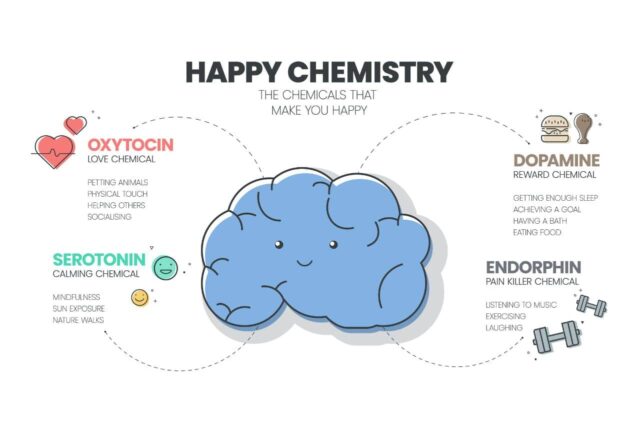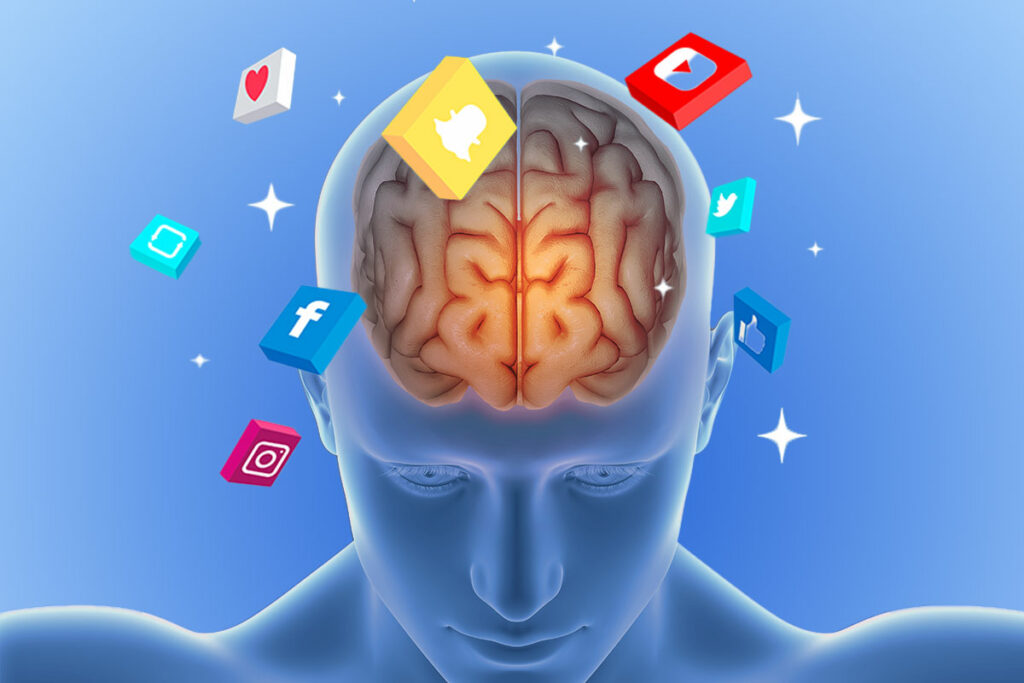We have been hearing for many years now warnings about social media and its impact on our youth. We never talk about the adults who are also likely addicted to the same social media, or smartphones in general. We hear about “dopamine hits” and most people don’t know what that means. We also hear about these large companies “mining your data”, and we still don’t know what that means. Many people think this is not important. Of course the internet and smartphones are so helpful and a wonderful tool. Today we will take a look at the neurotransmitter, Dopamine, and try to better understand the controversy, and why many experts are concerned.
Dopamine is a chemical in the brain that affects movement, mood, motivation, attention, and the way people seek rewards. It plays an important role in keeping both the mind and body healthy. When dopamine levels are not balanced, it can contribute to conditions like Parkinson’s disease, ADHD, addiction, and depression.[1] The way dopamine works depends on where it is released in the brain and how it interacts with different receptors, making its effects complex.[2]

Social media platforms take advantage of how dopamine functions to keep people engaged. By offering likes, comments, and notifications, they create a system that triggers dopamine releases, encouraging users to keep checking their devices.[3] The uncertainty of when a new like or comment will appear makes people check their phones more often, reinforcing the habit. Positive feedback, such as a post receiving a lot of likes, makes people want to post more in search of that same satisfaction. The continuous flow of new content and the endless scrolling feature make it easy to stay on social media for long periods of time.[4] This cycle can lead to people spending more time online than they originally planned and, in some cases, developing a dependency on social media.
Many experts have raised concerns about the effects of social media, especially on mental health. High social media use has been linked to increased anxiety, depression, and low self-esteem.[5] The way platforms encourage constant engagement can contribute to addiction-like behaviors, making it difficult for people to take breaks. There are also concerns about privacy and data security, particularly with apps like TikTok, which have faced scrutiny over how they handle user information. Misinformation is another issue, as false or misleading content spreads quickly and can influence public opinions and behaviors.[6]
In response to these concerns, some steps have been taken to reduce the negative impact of social media. Efforts have included adding screen time limits, displaying content warnings, and encouraging platforms to make changes that promote healthier engagement. However, the effectiveness of these measures is still debated, and more research is needed to determine long-term solutions.[7]
Several experts have studied and spoken about the impact of social media. Tristan Harris, a former Google designer and co-founder of the Center for Humane Technology, has criticized the ways social media platforms are designed to be addictive. He was featured in The Social Dilemma, a documentary that explores social media’s effects on mental health and democracy. Sherry Turkle, a professor at MIT, has written about how social media affects relationships and communication, arguing that constant online connection can actually make people feel more isolated. Cal Newport, a professor at Georgetown University and author of books like Digital Minimalism, encourages people to reduce their social media use and focus on real-life activities. Jonathan Haidt, a psychologist, has studied social media’s effects on mental health, especially among younger generations. He believes that social media contributes to mental health issues, political division, and a weakening of democracy.
Social media is entertaining and engaging, but it can also have negative effects on mental health and well-being. While some measures have been introduced to address these concerns, there is still much debate over how to find a balance between user engagement and mental health. Understanding how social media influences behavior and dopamine levels can help people make more informed choices about how they use these platforms.
References
[1] Volkow, N. D., Wang, G. J., Fowler, J. S., & Tomasi, D. (2012). Addiction Circuitry in the Human Brain. Annual Review of Pharmacology and Toxicology, 52, 321-336.
[2] Schultz, W. (2015). Dopamine Reward Prediction Error Coding. Dialogues in Clinical Neuroscience, 17(1), 23-32.
[3] Montague, P. R., Hyman, S. E., & Cohen, J. D. (2004). Computational Roles for Dopamine in Behavioral Control. Nature, 431(7010), 760-767.
[4] Alter, A. (2017). Irresistible: The Rise of Addictive Technology and the Business of Keeping Us Hooked. Penguin Press.
[5] Twenge, J. M., & Campbell, W. K. (2018). The Narcissism Epidemic: Living in the Age of Entitlement. Atria Books.
[6] Vosoughi, S., Roy, D., & Aral, S. (2018). The Spread of True and False News Online. Science, 359(6380), 1146-1151.
[7] Harris, T. (2020). The Social Dilemma [Film]. Netflix.




